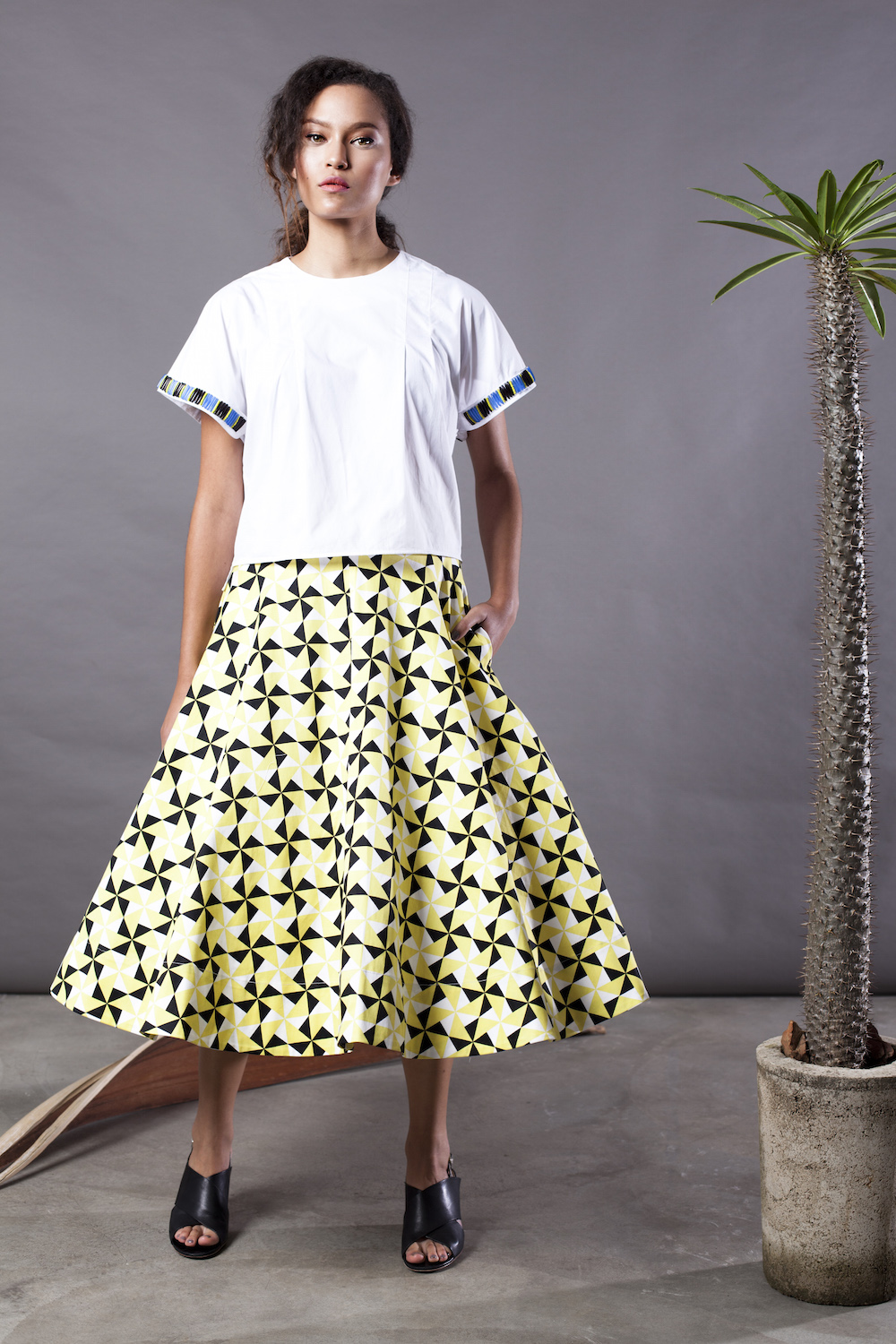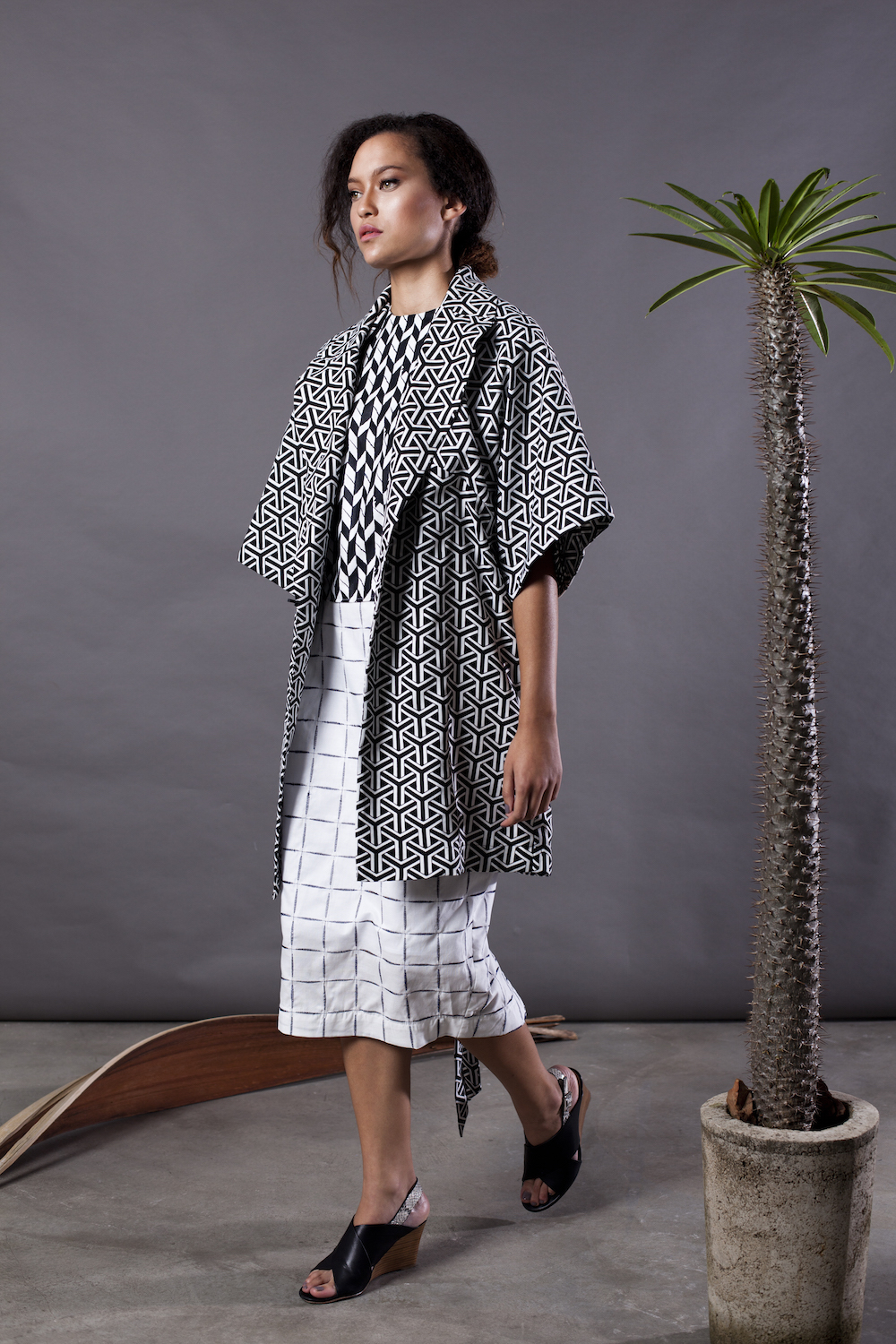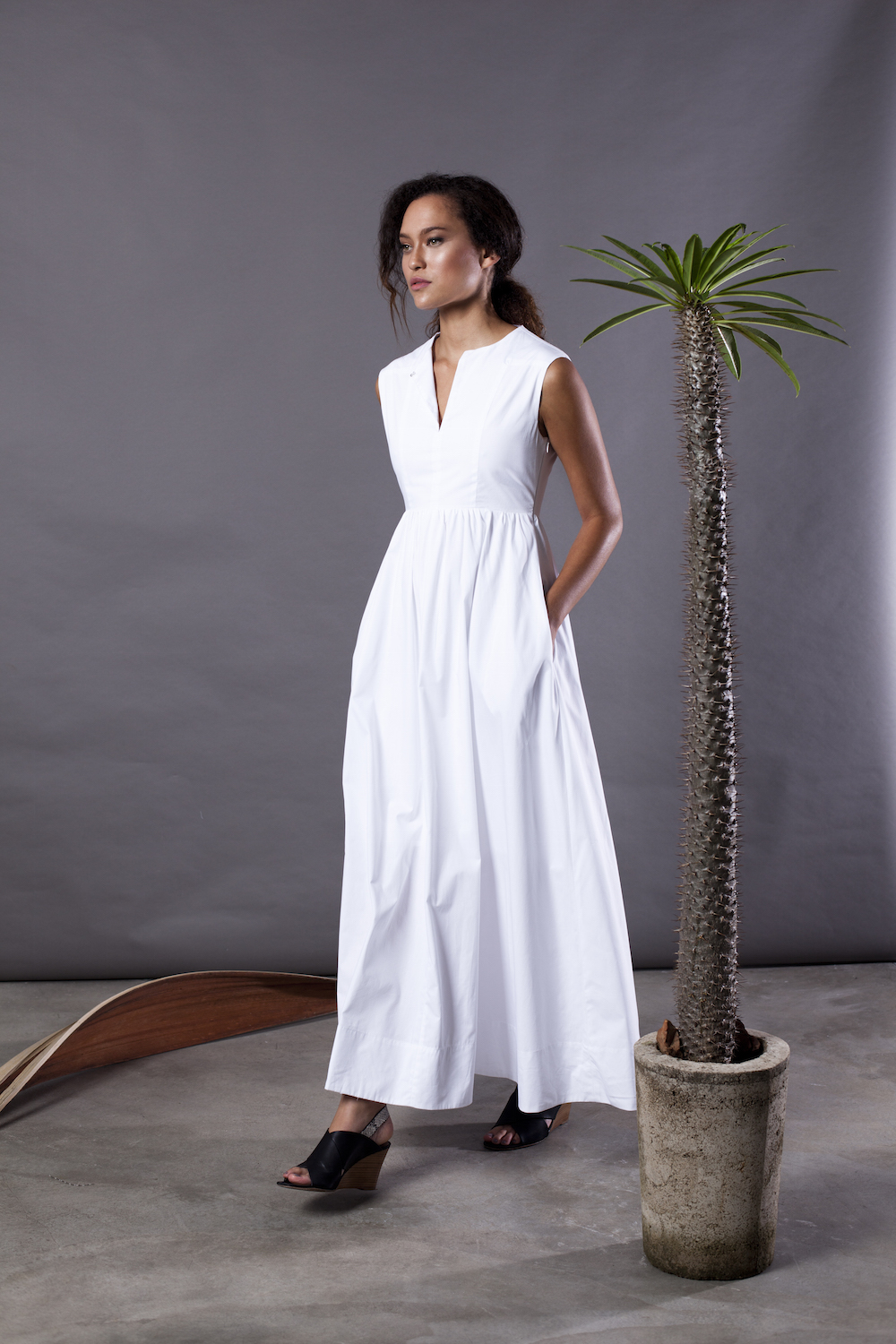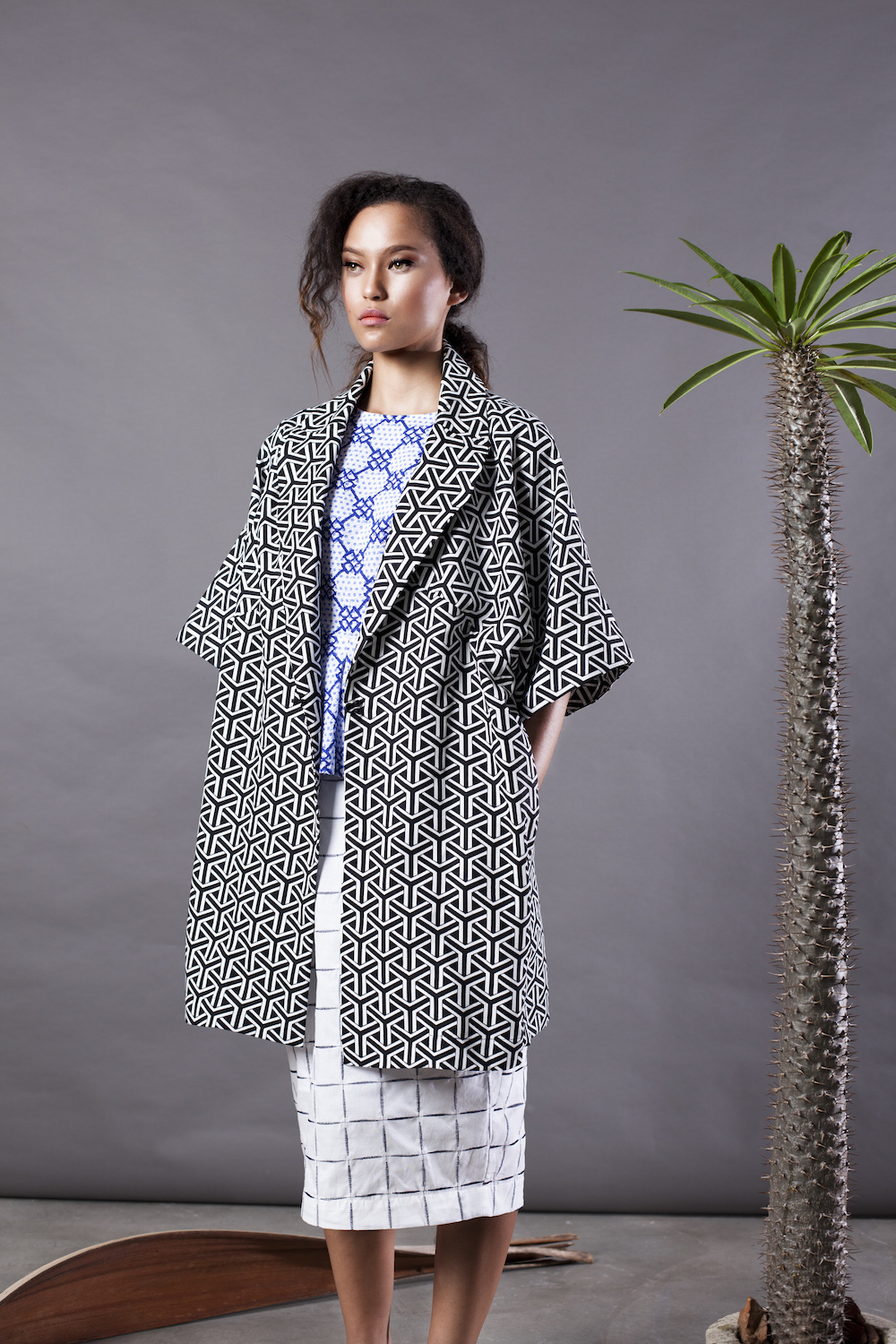Kisua comes from the Swahili word for ‘well-dressed person’ and Samuel Mensah, founder and chief executive officer of the so-named e-commerce clothing company, is on a mission to dress the world in Africa-inspired clothes.
Mensah, through Kisua, is trying what other African fashion designers have failed to do: build a sustainable and scalable African fashion company.
‘It’s not your grandmother’s African fashion,’ Mensah said recently from Kisua’s Johannesburg headquarters, housed in a co-working space the brand shares with an African-diaspora executive search firm and other start-ups.
In the past decade, Africa has seen an influx of fashion brands and retailers, from high-end stores such as Ermenegildo Zegna in Lagos to Zara and H&M in South Africa. The consumer goods companies are courting the continent’s growth. While multinationals aim to tap increased spending power across the continent and many have met with success, Kisua hopes to play a bigger game. Mensah believes a homegrown African fashion company can transform Africa’s own fashion industry.
Kisua is coming up on its second birthday and already has a lot to celebrate. The brand launched in November 2013 and since then its customers have roughly doubled each year since the launch, Mensah says.
‘When Midwest Americans start coveting your product then you know you’re crossing over from an interesting unique brand to something more mainstream.’
Kisua has dressed celebrities such as Beyoncé (the jacket and skirt she wore immediately sold out), singer-songwriter Estelle, author Chimamanda Adichie and the fashion editor at Vogue Italia. When Beyoncé’s stylist contacted Kisua, the team thought it was a hoax. ‘We didn’t respond for a week and a half,’ Mensah says laughing. He then did some research and realised it really was Beyoncé’s stylist. The most surprising purchase came from customer in Utah in the US.
‘For me that was confirmation that African fashion really started to go mainstream; when Midwest Americans start coveting your product then you know, ok, we’re crossing over from an interesting unique brand to something that is becoming mainstream,’ Mensah says.
While the beauty of the designs make Mensah proud, it’s the business model – and what Kisua can do for African fashion – that has him particularly excited.
‘The creative is only about 20 per cent of what we do. The other 80 per cent is finance, product management, logistics, and supply chain management.’
The Kisua office feels more like an online startup than an atelier. The building is down the road from Johannesburg’s main business quarter. Mensah, dressed in a button-down shirt tucked into jeans on the day, says he’s mixing his finance and technology background to create a fashion company. Mensah believes Kisua’s business backbone will be what revolutionises the way African fashion is produced and consumed and it’s also what he says makes Kisua different from other African designers.
‘The foundation of any fashion brand of course is the creative. It’s got to be beautiful. It’s got to be stylish. The product has to be desirable. People have to want it. But to be honest, while that’s very important, it’s only about 20 per cent of what we do. The other 80 per cent is finance, product management, logistics, and supply chain management,’ says Mensah. He raised money to get Kisua off the ground largely from private African investors.
‘Where a lot of African designers experience difficulties is where they might be talented creatives but the business know-how is often behind their creative abilities.’
The Kisua team of roughly 20 people, primarily based in Johannesburg, includes designers and managers to oversee production, distribution, marketing and customer service. The clothes are designed by Kisua’s own team and also through partnerships with designers from other countries in Africa. The company launched with 10 designers from Nigeria, Kenya, Ghana and the DRC. The first design lines ranged from geometric prints to safari khaki.
Mensah also has an advisory board he consults for business and creative guidance. The board consists of Savile Row tailor Ozwald Boateng, former CEO Joop van der Meij of fabric company Vlisco and Lagos Fashion Week founder Omoyemi Akerele.
Mensah says Kisua’s strength lies in its ability to cut a fine dress and to then get that dress to a customer anywhere in the world. He equates Kisua to a kind of ‘back office’ similar to a bank that works with designers to get their clothes to market.
‘Where a lot of African designers experience difficulties is where they might be talented creatives but the business know-how is often behind their creative abilities,’ Mensah says.
‘We needed a model that still benefited from the creative abilities of African designers but took away the pain: the production, distribution, the marketing and the customer service. That’s what we do.’
Mensah himself doesn’t have a background in fashion. Before founding Kisua, he was the Africa director for Intel Capital and worked at Deutsche Bank.
Kisua organises the supply chain from sourcing fabric in West Africa to production in Cape Town, to international warehousing to service markets in the U.S. and Europe, to building an online technology platform that enables seamless production and distribution of a Kisua piece.
About 50 per cent of sales are to customers outside of Africa, with Europe the biggest destination. The e-commerce site launched first in Europe and the US because online shopping and delivery logistics are better compared to Africa where e-commerce is still nascent or non-existent, Mensah says.
‘Distribution and the logistics infrastructure to deliver across the continent still presents us with a challenge. It’s a lot easier to fulfil orders in more mature markets with better e-commerce infrastructure,’ Mensah says.
Kisua has opened pop-up stores in New York and Johannesburg and partnered with Italian web-based clothier Yoox SpA, the owner of high-end fashion site Net-a-Porter, to sell an exclusive line of citrus coloured summer clothes designed with Italian brand 8. Mensah is in talks with other potential collaborators and retailers. He says, ‘Watch this space.’ As Kisua continues to grow, Mensah is also considering adding a line of clothes for men.
Mensah himself doesn’t have a background in fashion. Before founding Kisua, he was the Africa director for Intel Capital and also previously worked at Deutsche Bank and tech consulting firm Gresham Financial Services. He studied economics at Oxford University. The idea for Kisua was born during his time at Intel Capital, where his role was to invest in innovative African technology companies and start-ups.
‘From a business point of view, we have so much of the world to introduce to African fashion.’
During his travels for work he got into the habit of bringing back pieces of clothing and art from different cities across Africa. He would then often gift these items to friends. When friends started asking him to bring back more, he had a hunch there was demand for African fashion that was not being met.
‘Contemporary African fashion is quite beautiful and there is demand for it in Africa and globally. It appeared people couldn’t get it. So I started to apply my mind to figure out the structure of the industry and why there appeared to be a supply bottleneck that prevented demand from being fulfilled,’ Mensah says.
Intel Capital was also looking for fashion commerce deals to complete, but Mensah couldn’t find anything that was scalable. He found a lot of designers but not a single homegrown African fashion powerhouse. That’s where he says his ‘love affair’ with contemporary African fashion began and where Kisua was born.
With Kisua about to turn two, Mensah has plans to grow.
‘We have just in my view started to scratch the surface. There’s still a lot to do from a design perspective. The African continent offers so much material. There’s so much to explore,’ Mensah says. ‘From a business point of view, we have so much of the world to introduce to African fashion. So many consumers that need to be introduced to what we do and get a taste of contemporary African fashion. There is still a lot of growth for us in South Africa and in other African countries.’
All clothes featured available at kisua.com





